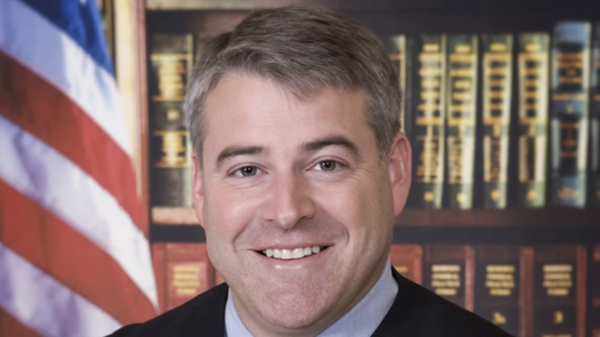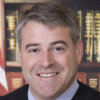By Bill Britt
Alabama Political Reporter
As a soldier, physician, and man of faith, Dr. Stewart Hill Tankersley holds firm to his beliefs on right and wrong. As he ends his five-year service on the State’s Ethics Commission, he’s convinced there has been progress, but there are still many obstacles to restoring public confidence in the State’s elected leaders. In just two years, the State has seen the fall of Mike Hubbard, the Speaker of the House, convicted on 12 felony counts of public corruption, and Governor Robert Bentley, resigning in disgrace after accepting a plea to campaign finance violations.
During his time on the commission, Tankersley says he’s been shocked to see lobbyists, lawyers, and the State’s political elites shown deference by the Commission, while the “little guy” in the far reaches of the State is judged strictly by the letter of the law.
In an exclusive interview with the Alabama Political Reporter, Dr. Tankersley recalls some of the commission’s failures, accomplishments, and his ideas for much-needed reforms. Once Tankersley completes his appointment in August, the commission will be wholly comprised of lawyers which Tankersley finds somewhat troubling.
During his tenure as commissioner, Tankersley has often been the odd-man-out and the sole voice of reasoned opposition in a commission more willing to find exception to the State’s tough ethics laws, rather than enforce them. A commission free from the restraints of the laws they are charged to enforce, where far too often decisions are more political than judicial.
Tankersley says selecting Tom Albritton as Director has been the commission’s single greatest accomplishment over the last five years. “The State is so well served by Tom. I have great confidence in him,” said Tankersley. “His Integrity and work ethic is an example to all, and he has brought a sense of purpose and camaraderie back the commission’s staff.”
He says under Albritton’s leadership there is greater transparency with a more significant review of issues and an earnest will to do what is right, and not what is easy.
Tankersley recalls how under the previous leadership informal opinion would be verbally given without record keeping, or informing the commission, that has stopped he says. “It used to be when someone would ask for an informal opinion there would be no notes or records kept,” said Tankersley. “Tom has insisted that they are in writing, and records kept.”
However, Tankersley agrees that even with the new procedure informal ethics opinions are fraught with potential problems, as was the case against former Speaker Hubbard. During Hubbard’s felony trial his attorneys use an informal opinion prepared by Ethics Commission General Counsel Hugh Evans, III, to create reasonable doubt among jurors. Hubbard was charged with using his office for personal gain because he was being paid $10,000 a month to represent the Southeast Alabama Gas District (SEAGD). Hubbard was convicted on similar charges, but the presence of a written informal opinion empowered Hubbard’s lawyer to successfully argued that Hubbard had sought and received a favorable report to work for SEAGD, under the guise of economic development. There is presently a request before the commission seeking an exemption for those engaged in economic development from having to register as lobbyist as is the current understanding of the law.
Tankersley says that informal opinions are sought to avoid a perception of impropriety, but do not have the weight of law and therefore shouldn’t be used as a license to avoid repercussion if someone over steps the bounds of the law.
Of the many things, Tankersley has questioned one of the must puzzling to him is why individuals and entities are allowed to lobby individual commissioners for favorable rulings? “I’ve never understood the concept—it’s pretty common sense that you can’t lobby a judge before going before him at trial. How people think they can go before a hearing and talk to a commissioner unbeknownst to others is acceptable.” He says it happens often and without consequence to the commissioner, or those seeking ex parte audiences.
Tankersley uses as an example of what he calls an opinion review “orchestrated” by attorney J. Mark White to overturn the definition of a “Principal.” White a prominent Birmingham-based lawyer who represented Hubbard during the run-up to his criminal trial was on instrumental in convincing the commission to withdraw an opinion issued by the commission in the “Friends of McCalla” decision.
In a unanimous vote on September 1, 2016, the Ethics Commission issued advisory opinion 2016-24, which they believed clarified the question regarding public officials soliciting lobbyists and principals for contributions to a charitable organization, operating as a 501(c)(3) non-profit. The issue was raised by the non-profit group, Friends of McCalla.
Ethics Commission withdraws McCalla opinion after charities line-up
After approving the opinion in a 5-0 vote, the Commission gave a 30-day window for public comment; however, it was questionably extended past the 30 days to December 7.
In the interim, several well-known charities were alerted that the definition of a principal under Friend of McCalla, could put their donors in legal jeopardy. It was later revealed that the charities were being used as pawns to overturn McCalla’s definition of a principal to benefit corporate interests who hired lawyers to lobby commission chair Judge Jerry Fielding and other commissioners. “Jerry Wood and I were the only commissioners not brought in on the loop,” said Tankersley. “We knew the chairman [Fielding] had been discussing the issue with Mr. White before the hearing.”
The plan worked as the business interests had hoped with McCalla being overturned in a 3-2 voter with commissioners Fielding, Frank C. “Butch” Ellis, Jr., and Judge Charles Price casting their lot to withdraw MaCalla. So ready was Fielding to end the matter, that commissioner Wood had to remind Fielding to ask for any nay votes. Both Wood and Tankersley vote against withdrawing the opinion. Director Albritton almost franticly asked that McCalla simply be suspended to allow for its framework as a bases for continued discussion; but his plea was ignored by Fielding.
Tankersley said it was most telling that Fielding called on White before the vote to see if he had anything to add, even though he was not signed-in to speak. “The chairman asked White if he had anything else to bring forth [before the vote] even though he was not on the list to make a statement,” said Tankersley. “Odd very odd,” he added.
But this is not the only time Tankersley felt the commission was clouding or manipulated by outside special interests.
These incidents and Tankersley’s recommendation will be revealed in the next installment of APR’s interview with Dr. Tankersley.



















































